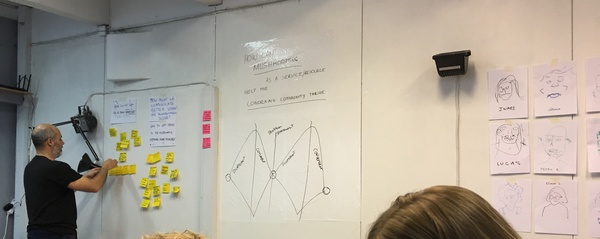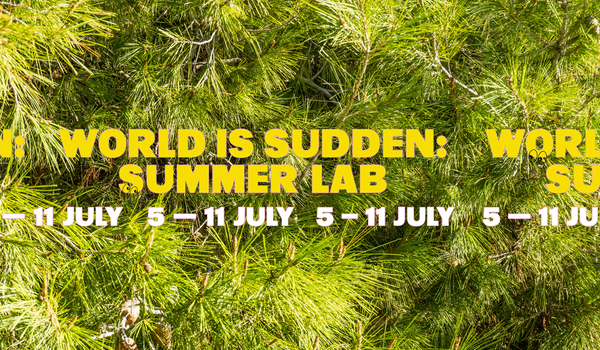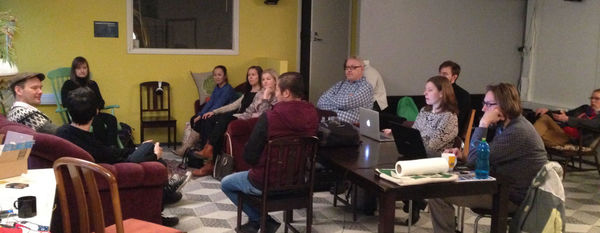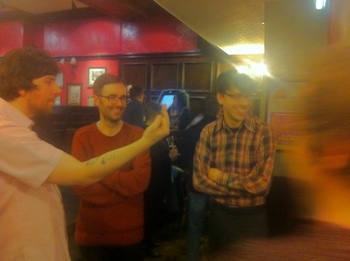An open letter to the new Culture Minister in Estonia
Dear Urve Tiidus,
Congratulations on your appointment as the new Culture Minister of Estonia. I don't know anything about you, and I don't even know what specifically you can do as Culture Minister, but I welcome any potential change in culture policy in Estonia and wish you the best.
My hope in writing this letter is to encourage some discussion about the various forms of culture in Estonia, and to seek alternatives that will open up connections between talented creators and enable existing resources to be put to more efficient use.
Estonia has much to be proud of in the last two decades of independence, and is emerging as a technocratic society, similar to Finland. To my English-reading eyes, the national narrative is a hope that technology and business will provide economic salvation.
The relationship between culture and business is a tricky one. Artists and other culture producers often look to private industry to be their patrons, and limited state support means this will only increase. But a uniquely Estonian approach to culture may be to look at things more holistically; business is culture, just as culture is business. The two are interlocked, and cannot survive without each other.
With the growing business climate in Tallinn, it's more important than ever to invest in the cultural future; a future that does not have to oppose economic development, but does also not have to be subservient to it either. The rise of 'creative industry' in Estonia is not inherently a bad idea: art and creativity should certainly strive to find alternative, sustainable models for its own continued existence. Additionally, the line between "public" and "private" is quite blurry (as in most post-Soviet states) and this can be a good thing. But we must ensure that these public/private hybrids empower creativity, and do not exploit it. We must be sure to leave space for artistic research and (for lack of a better term) "pure" culture that does not generate revenue.
This country, through its long and complicated history, has been resilient against adversity. It has done this through strong communities - cities, towns and villages - that solve problems in pragmatic ways.
The arts in Estonia are created by brilliant and talented people who have emerged from this heritage. Yet it often seems like the manner in which culture is organised - the structures of institutions and activities - does not suit the small, "everyone knows everyone" approach that is so unique. Models from Western states are often grafted onto the Estonian situation, where many of the elements that allow such models to work in other countries just do not exist here: commercial art collectors, or a young culture-producing public with much disposable income.
Estonia doesn't need a cultural revolution, but it needs a way to better support the relationships between creators, and to encourage sharing, collaboration and participation. To employ a corny metaphor: by watering the roots of a tree it will grow; more branches will emerge, and ultimately more creative ideas will flourish. It is also important to support individuals and end-products, but that is often like watering only the leaves at the end of each branch.
Some may ask me for a concrete example, but this is not the purpose of this letter. There is not one answer; there are many, just as there are many ways to organise cultural activities. This is my point: we require alternatives, not just in aesthetics but to the means of disseminating them. And these alternatives will come not from one person, but from everyone - if we can only get together and start dialogues.
The talent and resources are there. We need to find a way to reward openness, and encourage collaboration. Parceling out small grants to individuals and projects creates a competitive environment which enables culture in Estonia to continue, but not to grow. By investing deeper - into structures that are truly open, inclusive and empowering - culture producers can develop their own networks and create a framework for the future. Such a framework would be a major achievement for Estonia, Europe and the world.
Best of luck,
John W. Fail
Chief Cultural Strategist
MTÜ Ptarmigan





